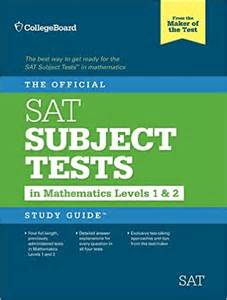Primary School Sats examiners must be given the benefit of the doubt when it comes to the standard of marking.
Following the announcement last week that 40% of primary school children failed their sats , there have been a number of complaints from teachers about the standard of marking for the primary school Sats papers. Angry teachers have called it a shambles beyond parody that many school children were denied marks because their commas and semi-colons failed to meet strict official standards on shape and size.
Teachers feel primary school children are not being encouraged to do well because of the strict marking guidelines by the Government’s Standards and Testing Agency (STA). However, examiners must be trusted at least when dealing with primary school children, to be as fair as possible. Sats examiners were instructed to mark down semi-colons that failed to “adhere to the convention in relation to point of origin, height, depth and orientation”. This stipulation has been criticised by teachers, but the criticisms must be examined properly.
Pupils are expected to demonstrate thorough understanding of what they have been taught. This understanding is crucial at an early age. A sentence that is poorly punctuated is ruined by the error, and this is the point the government and examiners are getting at. The stipulation condemned by disappointed teachers as “draconian” is mistaken if the teachers feel pupils should be allowed to be marked favourably for poorly presented punctuations.
Angry teachers have been sharing examples on social media, but some of those examples featured reveal flaws in the punctuations of pupils. The instructions are detailed and specific, and teachers are expected to have prepared their students accordingly.
GUIDELINES
The guidelines are as follows:
“The dot of the semi-colon must not be lower than the bottom of the letter ‘w’ in the word ‘tomorrow’.
“The orientation of the comma element of the semi-colon must be inclined to the left or straight down.
“It cannot incline to the right.”
The essence of a good education is for pupils to show that they have understood important aspects of what they have been taught. Primary school children are expected to show that they know how to use inverted commas and semi colons very well, and the standard of marking should reflect how well this has been mastered. Primary school pupils in the UK have been pampered for too long, which is probably why teachers are furious that pupils were given no marks for correct sentences that were poorly punctuated. The government and examiners gain no pleasure in marking pupils down, especially at the tender age of 10/11- they are trying to set high standards, and this should be applauded.
Teachers need to take a close look at the requirements by the Government Standards and Testing Agency, and train their pupils from age 8 to perfect all the basic requirements, so that by the time their sats come up, they are truly prepared in every respect. Teachers seem to be complaining about everything; first it was the claim that the sats were too difficult, yet 60% of pupils passed the exams.
The focus should be on training pupils adequately to focus on their development rather than watching too much television. Children should still be allowed to be children, but this must not mean allowing them to just play all day after school, whilst some of their peers in other homes or parts of the country are wisely dedicating some time to developing their academic strengths. As stated before on previous articles on sats complaints, the eye of media.com is taking a close and thorough look at the standard of sats exams, with complaints about the marking system adding to it.
As things standards, the sats examiners must be given the benefit of the doubt, because they want only what is good for the children. It is far better for children to know their true strengths and weaknesses, than to continue their academic future based on lies.




